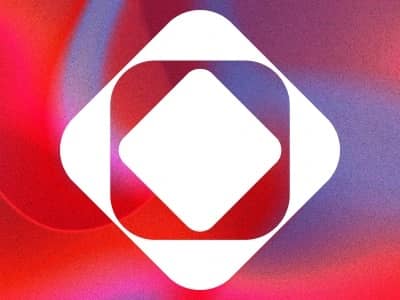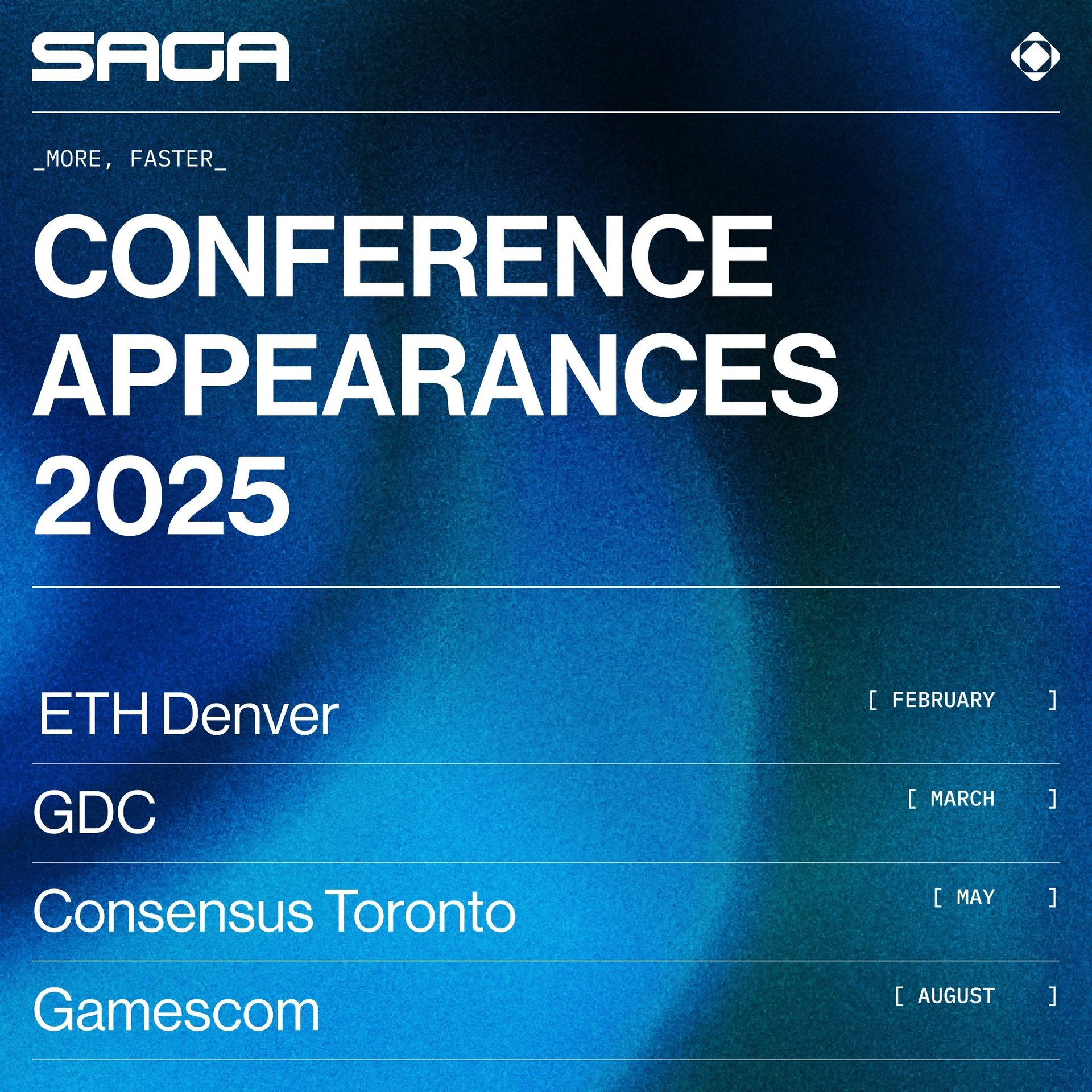위키 구독하기
Share wiki
Bookmark
Saga
0%
Saga
Saga는 Cosmos 소프트웨어 개발 키트(SDK)를 기반으로 구축된 Layer 1 네트워크이며, 개발자가 사용자 정의 가능한 기능과 확장성을 갖춘 분산형 애플리케이션을 구축할 수 있도록 애플리케이션별 블록체인 (앱체인)을 생성하도록 설계되었습니다. 2022년 1월 Rebecca Liao(CEO)와 Jin Kown(CSO)이 설립했으며, 보다 유연하고 효율적인 개발 환경을 제공하여 기존 블록체인 인프라의 한계를 해결하는 것을 목표로 합니다. [1] [2] [3] [7]
개요
Saga는 개발자가 특정 애플리케이션에 맞게 조정된 자체 전용 블록체인을 배포할 수 있도록 하는 프로토콜로 작동합니다. 이 플랫폼은 혼잡, 높은 거래 비용, 제한된 사용자 정의 옵션과 같이 공유 블록체인 인프라에서 구축할 때 개발자가 직면하는 문제를 해결하기 위해 만들어졌습니다. 이 프로토콜은 합의, 실행 및 결제 계층을 분리하는 모듈식 아키텍처를 활용하여 개발자가 특정 요구 사항에 따라 각 구성 요소를 사용자 정의할 수 있도록 합니다. 이 접근 방식은 애플리케이션이 리소스를 놓고 경쟁하고 처리량 및 기능 측면에서 제한에 직면하는 기존의 공유 블록체인 환경에 비해 보다 효율적이고 확장 가능한 솔루션을 제공하는 것을 목표로 합니다. [1]
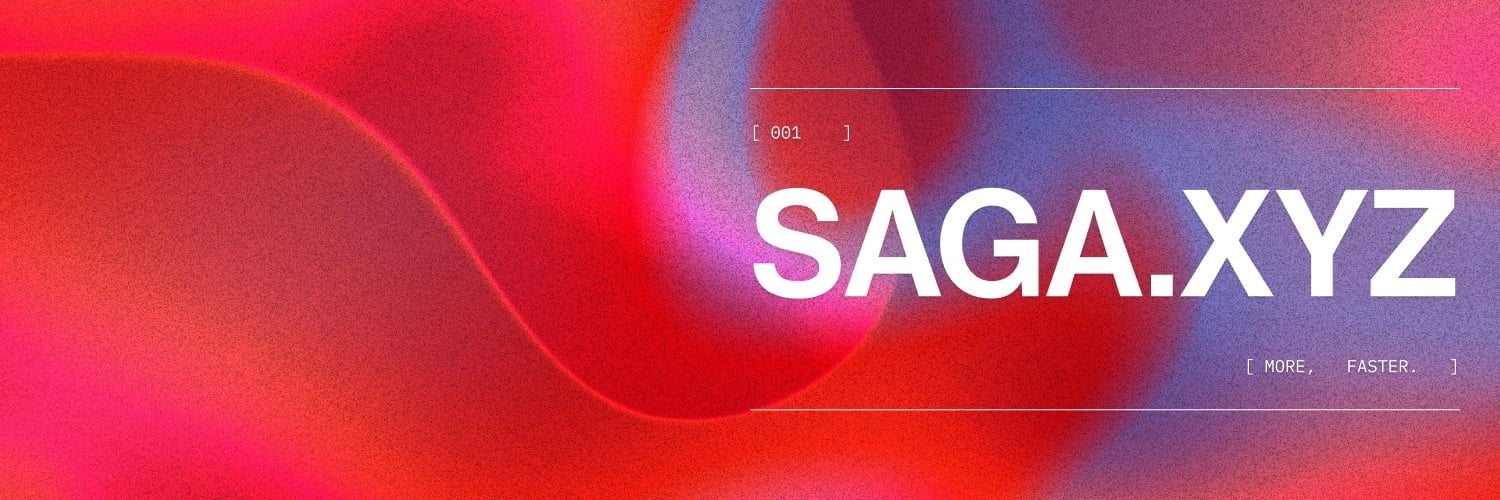
생태계
Web3 게임
Saga는 Unity와 같이 널리 사용되는 게임 엔진에 블록체인 인프라(특히 Saga Chainlet)를 통합하여 Web3 게임 개발을 지원합니다. Unity는 크로스 플랫폼 기능, 대규모 개발자 커뮤니티, Unity Asset Store를 통한 사전 구축된 자산에 대한 액세스로 인해 이 컨텍스트에서 자주 활용됩니다. 블록체인 기술과의 호환성은 Thirdweb에서 제공하는 것과 같은 소프트웨어 개발 키트(SDK)에 의해 촉진되어 개발자가 게임 환경 내에서 직접 지갑 연결 및 토큰 상호 작용과 같은 기능을 구현할 수 있습니다. [4]
Saga Chainlet
Saga Chainlet은 Saga 생태계 내에 배포된 독립적인 블록체인 환경으로, 개발자가 구성 가능한 매개변수로 사용자 정의 체인을 시작할 수 있도록 합니다. Chainlet은 자율적으로 작동하지만 Saga의 인프라에서 지원을 받아 게임 및 DeFi 플랫폼을 포함한 분산형 애플리케이션을 위한 전용 리소스를 제공합니다.
- 지갑 통합: 사용자는 Chainlet을 시작하기 위해 Keplr 지갑을 Saga 앱에 연결해야 합니다. Saga 팀에서 제공하는 일회성 암호는 시작 및 자금 조달에 사용되는 PSAGA 토큰에 대한 액세스를 제공합니다.
- Chainlet 구성: 출시 중에 개발자는 Chainlet 이름, 토큰 액면가, 호스팅 기간, EVM 제네시스 계정 및 거래 수수료에 대한 토큰 공급과 같은 매개변수를 지정합니다.
- 고급 옵션: 추가 설정에는 고정 기본 가스 가격 책정 및 최종 사용자의 거래 비용을 상쇄할 수 있는 가스 반환 계정 지정이 포함됩니다. 개발자는 출시 시 유지 관리자를 할당할 수도 있습니다.
- 대시보드 액세스: 배포되면 Chainlet의 대시보드에 Chainlet ID, RPC 및 WebSocket 엔드포인트, 가스 가격 책정 세부 정보, 블록 탐색기 액세스 및 에스크로 잔액을 포함한 주요 정보가 표시됩니다. [5] Saga Chainlet의 ERC-20 토큰 ERC-20 토큰은 이더리움 가상 머신(EVM) 호환 환경 내에서 사용되는 표준화된 유형의 대체 가능한 토큰으로, 분산형 애플리케이션 간의 양도 가능성 및 상호 운용성을 가능하게 합니다. Saga에서 개발자는 사용자 정의 Chainlet에 직접 ERC-20 토큰을 배포하여 생태계에 특정한 토큰을 발행하고 관리할 수 있습니다. [6]
주요 기능
사용자 정의 가능한 앱체인
개발자는 애플리케이션을 위해 특별히 설계된 블록체인을 만들 수 있으며 다음과 같은 기능을 사용할 수 있습니다.
- 특정 요구 사항에 따라 합의 메커니즘 선택
- 사용자 정의 실행 환경 및 가상 머신 구현
- 커뮤니티 요구에 맞게 조정된 거버넌스 구조 정의
- 거래 수수료 및 리소스 할당에 대한 매개변수 설정 [1]
확장성 솔루션
Saga는 다음을 통해 블록체인 확장성 문제를 해결합니다.
- 여러 앱체인에서 병렬 거래 처리 across
- 전용 체인에 애플리케이션을 배포하여 혼잡 감소
- 애플리케이션별 요구 사항에 따른 최적화된 리소스 할당
- 네트워크가 성장함에 따라 수평적 확장 기능 [1]
개발자 경험
이 플랫폼은 개발자 친화적인 도구 및 리소스를 우선시합니다.
토큰노믹스

Saga 토큰($SAGA)
SagaCoin(SAGA)은 네트워크 운영 및 사용자 참여를 지원하도록 설계된 Saga 블록체인 생태계의 기본 토큰입니다. 총 공급량은 10억 개의 토큰으로 제한되며 초기 유통 공급량은 9천만 개입니다. SAGA는 고객 알기 제도(KYC) 절차와 같은 규정 준수 메커니즘을 통합하는 Saga 보안 체인 내에서 작동합니다. 배포에는 특히 Binance Launchpool 51과 같은 플랫폼을 통한 채굴 인센티브가 포함됩니다. [7]
사용 사례
Saga의 앱체인 아키텍처는 개발자가 전용의 사용자 정의 가능한 블록체인을 배포할 수 있도록 하여 여러 산업 분야에서 광범위한 애플리케이션을 지원합니다.
DeFi 애플리케이션
분산형 금융 프로토콜은 Saga의 인프라를 활용하여 복잡한 금융 상품을 위한 맞춤형 실행 환경을 만들고, 고빈도 거래를 위한 거래 속도를 최적화하고, 특수 결제 계층을 구축할 수 있습니다. 또한 애플리케이션별 체인은 가스 요금과 같은 운영 비용을 줄일 수 있습니다. [1]
게임 및 NFT
Saga는 블록체인 게임 및 대체 불가능한 토큰(NFT) 프로젝트에 대한 확장성 이점을 제공합니다. 여기에는 대화형 게임 플레이를 위한 더 높은 거래 처리량, 일반 NFT 민팅 및 거래에 대한 더 낮은 수수료, 게임 내 자산에 대한 사용자 정의 가능한 스토리지가 포함됩니다. 더 빠른 거래 완결성도 사용자 경험을 향상시킬 수 있습니다.
엔터프라이즈 솔루션
조직은 Saga를 사용하여 개인 또는 허가된 블록체인을 배포하고, 규제 요구 사항을 충족하도록 네트워크를 구성하고, 산업별 솔루션을 구축할 수 있습니다. Saga의 앱체인은 기존 엔터프라이즈 시스템 및 워크플로와 통합될 수도 있습니다.
파트너십
Northern Lights Entertainment
Saga는 거버넌스, 외교 및 멀티플레이어 상호 작용을 강조하는 4X 정치 전략 게임인 _Nebulae_의 개발 및 운영을 지원하기 위해 Northern Lights Entertainment(NLE)와 파트너십을 체결했습니다. 이 협력의 일환으로 Saga는 게임 내 게임 플레이 및 경제 관리를 향상시키기 위해 인프라 및 AI 기능을 제공합니다. 이 파트너십은 AI 에이전트와 블록체인을 통합하여 참여도를 높이고, 게임 내 경제를 관리하고, 잠재적으로 플레이어 생성 데이터의 미래 애플리케이션을 탐색하여 대화형 게임을 발전시키려는 공통 목표를 반영합니다. [8]
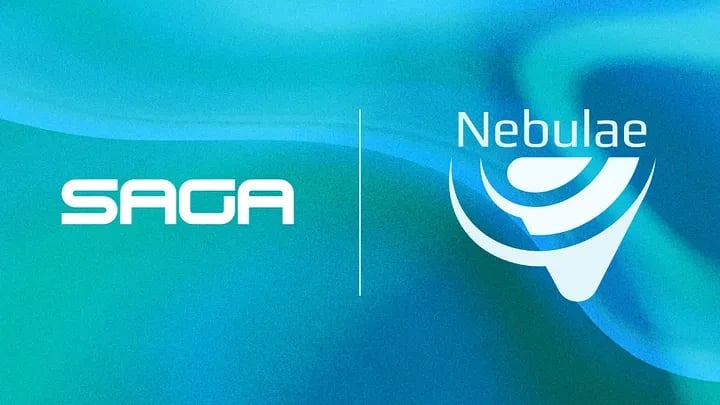
GFAL
Saga 프로토콜의 퍼블리싱 부문인 Saga Origins는 웹3 게임 스타트업인 Games for a Living(GFAL)과 독점적인 협력을 체결하여 곧 출시될 3D 매치-3 퍼즐 게임인 _Diamond Dreams_를 개선했습니다. 이 파트너십에는 GFAL이 Saga의 체인릿과 서비스를 활용하여 게임 플레이 운영을 개선하고 AI 기반 에이전트를 통합하여 플레이어와 실시간으로 상호 작용하는 지능적이고 역동적인 게임 내 캐릭터를 만드는 것이 포함됩니다. [9]
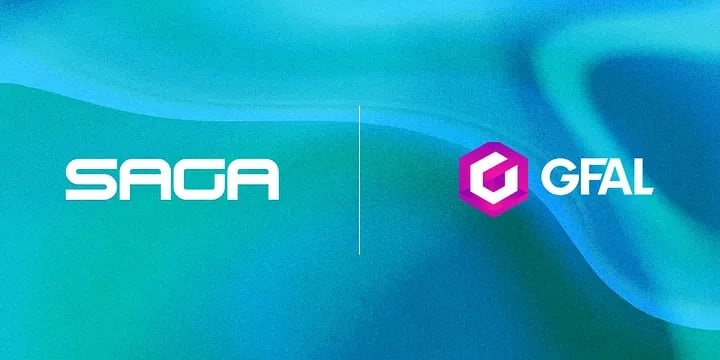
향후 개발
CoinMarketCap에서 제공되는 정보에 따르면 Saga의 로드맵에는 플랫폼 기능을 향상시키는 것을 목표로 하는 여러 계획된 개발이 포함되어 있습니다.
- 앱체인 생성을 단순화하기 위해 개발자 도구 및 템플릿 제품군 확장
- 주요 블록체인 네트워크와의 교차 체인 상호 운용성 개선
- 보다 효율적인 프로토콜 진화를 위한 거버넌스 메커니즘 강화
- 앱체인 배포를 위한 추가 보안 기능 개발
- 다양한 블록체인 부문에 걸쳐 프로젝트와의 파트너십 구축; 이 프로젝트는 확장되는 분산형 애플리케이션 환경에서 전문화된 블록체인 인프라에 대한 증가하는 수요를 해결하기 위해 기술 스택 및 생태계 지원을 계속 발전시키고 있습니다. [1]
잘못된 내용이 있나요?
